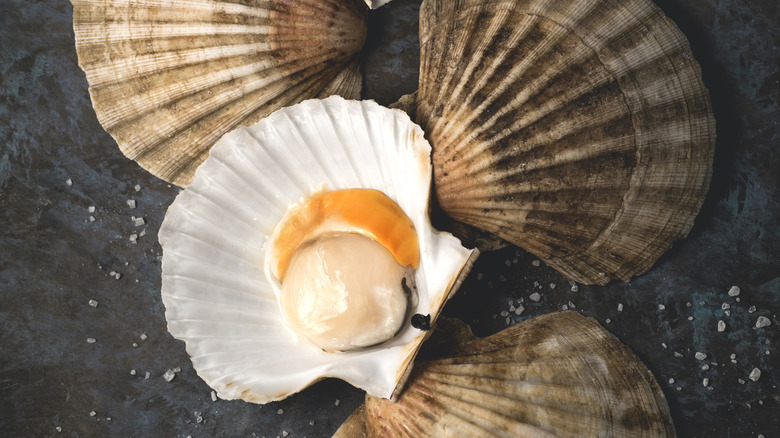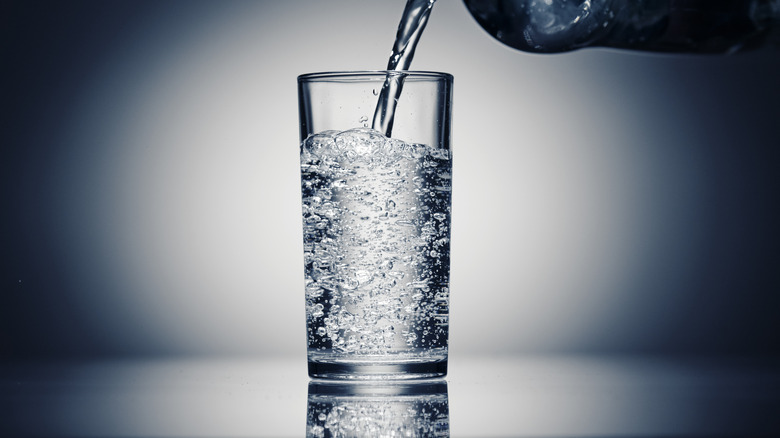To Guarantee Clean Scallops, Rinse Them In Sparkling Water
Perfectly seared scallops are, without question, one of life's greatest pleasures. Crispy on the outside yet tender and sweet on the inside, the best bite is achieved by properly prepping the shellfish. While everyone knows that a quick rinse before cooking is standard practice, you might want to start swapping tap or still water for sparkling. Not only will this hack guarantee cleaner crustaceans, but it'll also lead to a more pleasurable dining experience — and here's why.
When shopping for scallops, generally they can be sold either in their shells or already shucked. Regardless of which you buy, all scallops should have a fresh aroma of the sea. As for visual clues, scallops still in their shells should be tightly (but not completely) closed, whereas freshly shucked scallops should inside be firm, opaque, and shine-free. Likewise, any fresh or frozen shucked scallops should be "dry" as this ensures a richer flavor and a better texture, in comparison to phosphate-soaked "wet" scallops. Treated "wet" scallops are identifiable by their very white appearance.
Speaking of texture, given that scallops spend their days resting on sand-covered ocean floors, it's only natural that even dry scallops need a quick rinse before cooking to avoid any grittiness hiding in their ridges. However, rather than soak the crustacean for a more thorough clean, you might be surprised to learn that the secret to a cleaner scallop actually relies on which type of water you use to rinse the shellfish.
Sparkling water flushes out stubborn flecks of sand
Instead of using cool tap water or even still bottled water, Chef Adebola Adeshina shared in an interview with The Guardian that sparkling water does an even better job of removing any hard-to-see grit as the bubbles better penetrate the scallop. Essentially, sparkling water gets the job done much better without any extra elbow grease and without changing the flavor. But what exactly makes it such an effective cleaning agent?
Just like you might use carbonated water to remove stains or clean grimy surfaces, HomeSteady explains that the bubbling action of the carbon dioxide-infused water helps lift particles without applying any additional force. Consequently, where regular water just gently cleans the surface of a scallop, fizzy water takes this cleaning action a step further without ruining its delicate structure — just don't forget that after rinsing the shellfish in sparkling water, they still need to be patted dry before being added to a sizzling hot pan.

